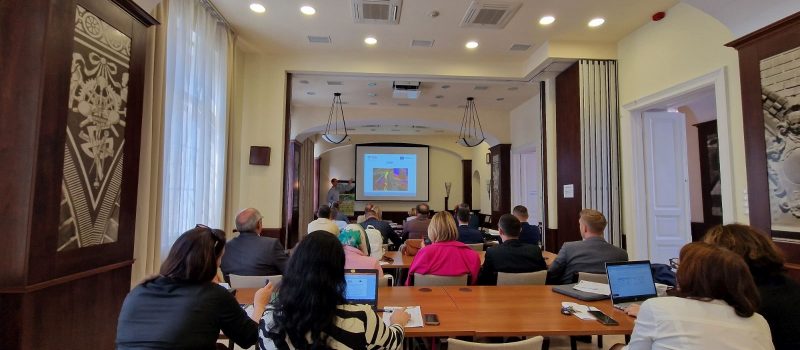IBC-M had the opportunity to contribute to the DGTRANS project comprehensive workshop held from 26 to 28 September 2023 in Budapest, Hungary, focusing on pivotal aspects of the Transport of Dangerous Goods (TDG). The workshop, hosted at the Bánki Donát Faculty of Mechanical and Safety Engineering, Óbuda University, brought together esteemed professionals, educators, and stakeholders engaged in TDG from various regions.
A Glimpse into the Workshop
The workshop was meticulously structured, encompassing diverse sessions that delved into intricate details pertaining to TDG. With a potent blend of theoretical insights and practical demonstrations, the workshop aimed to augment the knowledge and skills of Transport of Dangerous Goods (TDG) professionals and educators.
A particularly interesting session of the workshop was dedicated to “Training for Teaching Staff,” exploring the innovative application of drones in dangerous goods accidents and introducing risk analysis methods applicable to TDG. Insightful discussions and knowledge-sharing during these sessions paved the way for enriching learning experiences for the participants.
IBC-M’s Noteworthy Contribution
International Business College Mitrovica (IBC-M) was represented by the Academic Director Jelena Djokic, Project Officer Gresa Ferri, and Project Office Coordinator Damir Gashi, each bringing their unique contribution to the table. Professor Jelena Djokic presented a “Catalogue of Competences” and shared invaluable survey results, shedding light on the detailed aspects of transporting dangerous goods in Kosovo. The catalog meticulously delineated the competencies required in the domain of TDG, thereby serving as a reference point for educators and professionals alike in designing curricula and training modules.
IBC-M’s involvement in the workshop demonstrated its commitment to enhancing TDG management and safety and exemplified its role as a leader in bringing about transformative changes in TDG education and practices. The insights shared during the workshop are envisioned to significantly influence future IBC-M curricula, training modules, and TDG management strategies, thereby fostering enhanced safety and efficacy in the transport of dangerous goods across the region.

